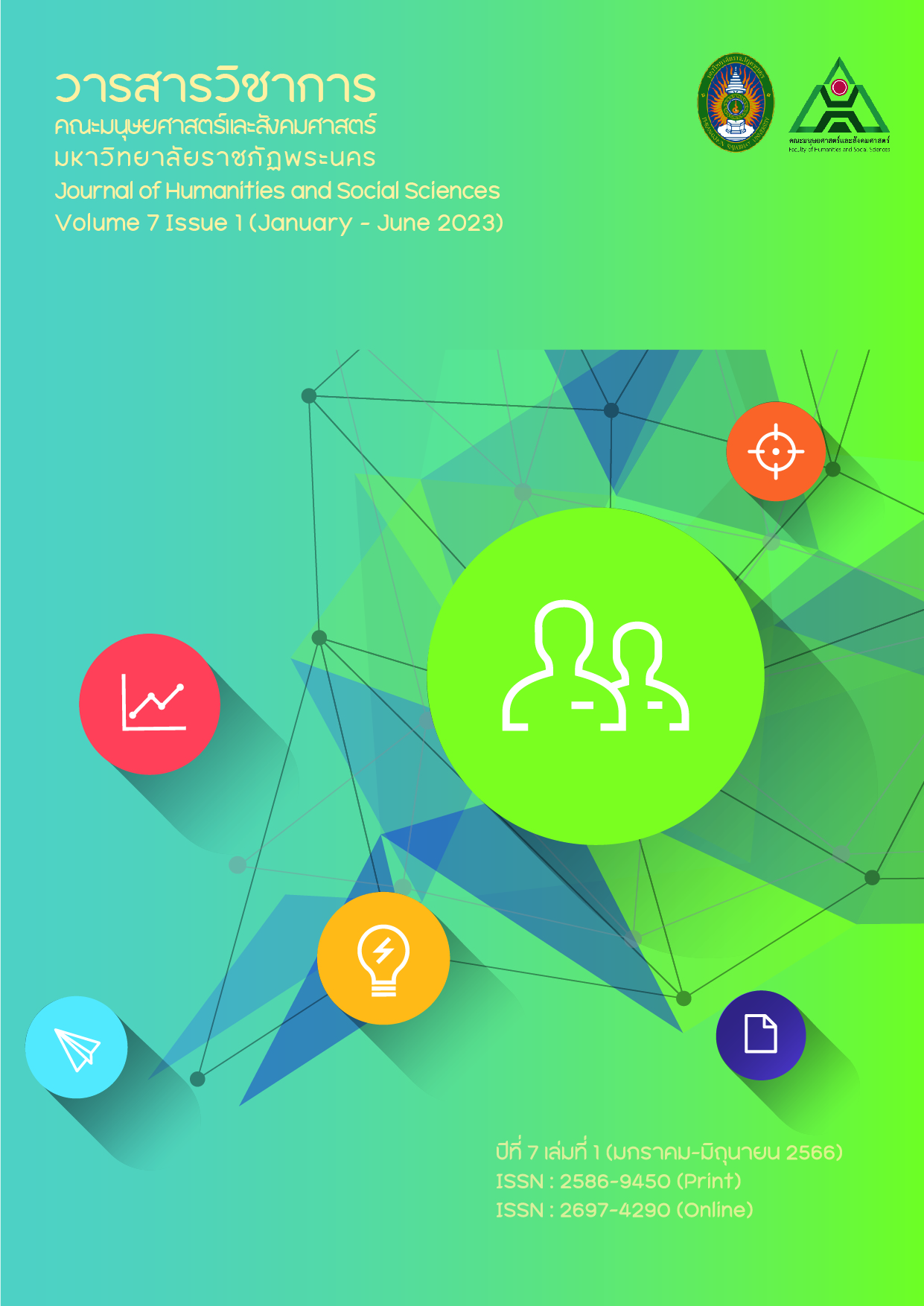NEW NORMAL INNOVATION FOR DEVELOPING DIGITAL ETIQUETTE SKILL SOCIAL STUDIES
Main Article Content
Abstract
The current situation has transformed society into the digital age. There is a New Normal of Social studies learning. a problem condition of digital citizens Lack of judgment in media use Technology lacks factual analysis of data. and lack of ethics in the use of media and technology Promote the attributes obtained from statistical synthesis to form a feature element To provide students with a state of readiness to study using the interview method and sample survey The tools used are Interview form and questionnaire Statistics used in Analyze data including frequency, percentage and average trade. 1) Problems of students' digital etiquette 2) Promote the attributes obtained from statistical synthesis to develop digital etiquette skills which must have 3 components: 1) digital etiquette learning management plan 2) new teaching media Promote digital etiquette skills 3) Assessment of overall IOC values is at the highest level
Article Details
References
Charin Mangkang. (2016). Futuristic Science: Theory and Techniques of Social Studies Learning Management. Chiang Mai: Diamond Graphics Group Publishers.
Charin Mangkang. (2018). Knowledge of Curriculum and Teaching in Social Studies. Bangkok: Chulalongkorn University Press.
Chetaphum Wanphaisan. (2020). Social Studies Research: Principles and Applications. Bangkok: Danex Inter Corporation.
Jatuporn Khaomala. (2018). The development of a learning management model that enhances the characteristics of Citizenship is a vocational course for nursing students. in the Doctor of Philosophy Research and Curriculum Development. Srinakharinwirot University, 15(2), 173-178.
Johnson, D. W. & Johnson, R. T. (2017). Cooperative Learning. In Minnesota. University of
Minnesota.S.R. Clegg, C. Harddy, and W.R. Nord Eds. (2021). The normal science of structural contingency theory. The Sage handbook of organization studies, 12(3), 57-76.
Lyons, R. (2012). Investigating Student Gender and Grade Level Differences in Digital Citizenship Behavior. In Doctor of Education. College of Education.
Marut Pattphon, Wichai Wongyai. (2019). Digital Learning. Bangkok: Center for Leadership in Curriculum and Learning Innovations, Mahidol University. (2016). Digital LiteracyCurriculumRetrievedMay1,2022,from:https://sites.google.com/ska1.go.th/digitalliteracy.
Waraporn Chanachanta, Charin Mangkang. (2561). Learning innovation using virtual technology to the future of the classroom. Social studies online. Journal of the Faculty of Humanities and Social Sciences, Phranakhon Rajabhat University, 5(2), 273-296.


